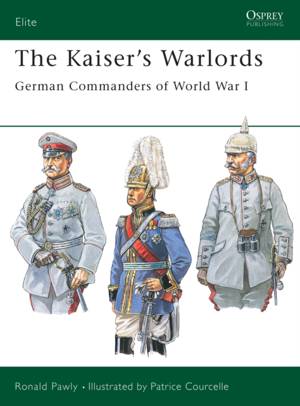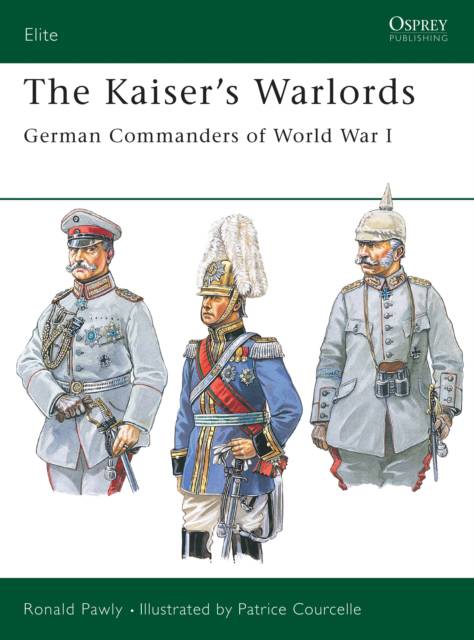
- Afhalen na 1 uur in een winkel met voorraad
- Gratis thuislevering in België vanaf € 30
- Ruim aanbod met 7 miljoen producten
- Afhalen na 1 uur in een winkel met voorraad
- Gratis thuislevering in België vanaf € 30
- Ruim aanbod met 7 miljoen producten
Zoeken
Omschrijving
Osprey's study of the German commanders of World War I (1914-1918). The turn of the 20th century saw Imperial Germany as essentially a militarist state, whose growing industrial resources and wealth were harnessed to the task of increasing German military power, at a time of aggressive expansionist diplomacy in competition with Britain and France. After her victories over Austria in the 1860s and France in 1870, Germany's General Staff enjoyed tremendous professional prestige throughout Europe, and was the model for all aspects of command and control. The German army was essentially that of Prussia, Bavaria and Saxony with smaller contingents from the lesser states. Its generals were the men who planned, initiated, and to a large extent controlled the course of World War I.
Specificaties
Betrokkenen
- Auteur(s):
- Illustrator(s):
- Uitgeverij:
Inhoud
- Aantal bladzijden:
- 64
- Taal:
- Engels
- Reeks:
- Reeksnummer:
- nr. 97
Eigenschappen
- Productcode (EAN):
- 9781841765587
- Verschijningsdatum:
- 21/11/2003
- Uitvoering:
- Paperback
- Formaat:
- Trade paperback (VS)
- Afmetingen:
- 198 mm x 234 mm
- Gewicht:
- 213 g

Alleen bij Standaard Boekhandel
+ 44 punten op je klantenkaart van Standaard Boekhandel
Beoordelingen
We publiceren alleen reviews die voldoen aan de voorwaarden voor reviews. Bekijk onze voorwaarden voor reviews.











